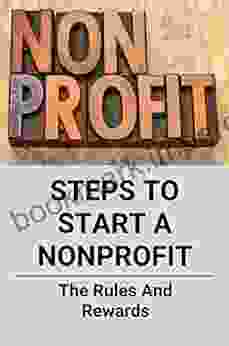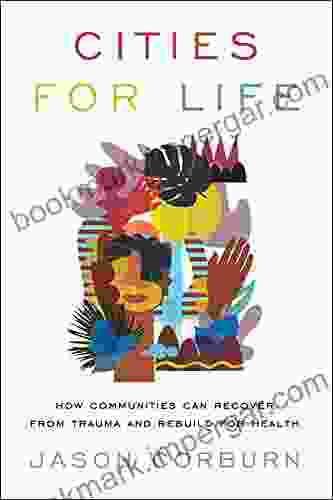How Communities Can Recover From Trauma And Rebuild For Health

This book provides a comprehensive guide to help communities recover from trauma and rebuild for health. It covers a wide range of topics, including the impact of trauma on individuals and communities, the role of resilience in recovery, and the importance of community engagement.
5 out of 5
| Language | : | English |
| File size | : | 6206 KB |
| Text-to-Speech | : | Enabled |
| Screen Reader | : | Supported |
| Enhanced typesetting | : | Enabled |
| Word Wise | : | Enabled |
| Print length | : | 288 pages |
Trauma is a serious public health problem that can have a devastating impact on individuals and communities. It can lead to a wide range of physical and mental health problems, including post-traumatic stress disFree Download (PTSD),depression, anxiety, and substance abuse. Trauma can also damage relationships, disrupt social networks, and undermine economic development.
The good news is that communities can recover from trauma and rebuild for health. Resilience is the ability to bounce back from adversity and thrive. It is a complex process that involves individual, community, and societal factors. Communities that are resilient are better able to withstand and recover from traumatic events.
There are a number of things that communities can do to promote resilience and foster recovery from trauma. These include:
- Providing support to individuals and families affected by trauma. This includes providing access to mental health services, financial assistance, and other forms of support.
- Creating safe and supportive environments. This means creating places where people feel safe and connected, and where they have access to resources and opportunities.
- Promoting community engagement. This involves involving community members in the planning and implementation of recovery efforts. It also means creating opportunities for people to connect with each other and build relationships.
- Addressing the root causes of trauma. This includes working to reduce poverty, violence, and other social problems that can contribute to trauma.
Recovering from trauma is a long and difficult process, but it is possible. By working together, communities can create safe and supportive environments that promote resilience and foster recovery.
The Impact of Trauma on Individuals and Communities
Trauma can have a devastating impact on individuals and communities. It can lead to a wide range of physical and mental health problems, including PTSD, depression, anxiety, and substance abuse. Trauma can also damage relationships, disrupt social networks, and undermine economic development.
The impact of trauma can be particularly severe for children. Children who experience trauma are more likely to develop mental health problems, have difficulty in school, and engage in risky behaviors. They are also more likely to become victims of violence and abuse later in life.
Trauma can also have a negative impact on communities. Communities that have experienced trauma are more likely to have high rates of crime, violence, and poverty. They are also more likely to have lower levels of social cohesion and trust.
The Role of Resilience in Recovery
Resilience is the ability to bounce back from adversity and thrive. It is a complex process that involves individual, community, and societal factors. Communities that are resilient are better able to withstand and recover from traumatic events.
There are a number of factors that contribute to resilience, including:
- Individual factors: These include things like having a strong sense of self, being able to cope with stress, and having a positive outlook on life.
- Community factors: These include things like having strong social networks, access to resources, and a sense of community belonging.
- Societal factors: These include things like having a stable economy, a fair and just legal system, and a culture that values resilience.
Resilience can be learned and developed. There are a number of things that individuals and communities can do to promote resilience, including:
- Building strong relationships. Having strong relationships with family, friends, and community members can help you to cope with stress and adversity.
- Learning how to manage stress. There are a number of stress management techniques that can help you to reduce stress and improve your overall health and well-being.
- Developing a positive outlook on life. Having a positive outlook on life can help you to see the good in even the most difficult situations.
- Getting involved in your community. Volunteering or getting involved in other community activities can help you to connect with others and build a sense of belonging.
The Importance of Community Engagement
Community engagement is essential for recovery from trauma. Communities that are engaged in the recovery process are more likely to be successful in rebuilding their communities and creating a healthy environment for all.
There are a number of ways to engage communities in the recovery process, including:
- Involving community members in the planning and implementation of recovery efforts. This includes asking community members for their input on what needs to be done and how to do it.
- Creating opportunities for people to connect with each other and build relationships. This can be done through events, activities, and programs that bring people together.
- Providing opportunities for community members to learn about trauma and its impact. This can help to reduce stigma and build understanding.
- Empowering community members to take action to address the root causes of trauma. This can include working to reduce poverty, violence, and other social problems.
By engaging communities in the recovery process, we can create a more just and equitable world for all.
Trauma is a serious public health problem that can have a devastating impact on individuals and communities. However, it is possible to recover from trauma and rebuild for health. By working together, communities can create safe and supportive environments that promote resilience and foster recovery.
This book provides a comprehensive guide to help communities recover from trauma and rebuild for health. It covers a wide range of topics, including the impact of trauma on individuals and communities, the role of resilience in recovery, and the importance of community engagement.
I encourage you to read this book and learn more about how to help communities recover from trauma and rebuild for health.
5 out of 5
| Language | : | English |
| File size | : | 6206 KB |
| Text-to-Speech | : | Enabled |
| Screen Reader | : | Supported |
| Enhanced typesetting | : | Enabled |
| Word Wise | : | Enabled |
| Print length | : | 288 pages |
Do you want to contribute by writing guest posts on this blog?
Please contact us and send us a resume of previous articles that you have written.
 Book
Book Novel
Novel Page
Page Chapter
Chapter Text
Text Story
Story Genre
Genre Reader
Reader Library
Library Paperback
Paperback E-book
E-book Magazine
Magazine Newspaper
Newspaper Paragraph
Paragraph Sentence
Sentence Bookmark
Bookmark Shelf
Shelf Glossary
Glossary Bibliography
Bibliography Foreword
Foreword Preface
Preface Synopsis
Synopsis Annotation
Annotation Footnote
Footnote Manuscript
Manuscript Scroll
Scroll Codex
Codex Tome
Tome Bestseller
Bestseller Classics
Classics Library card
Library card Narrative
Narrative Biography
Biography Autobiography
Autobiography Memoir
Memoir Reference
Reference Encyclopedia
Encyclopedia Pier Giorgio Frassati
Pier Giorgio Frassati Immanuel Kant
Immanuel Kant Tony Alavon
Tony Alavon Ilya Odessky
Ilya Odessky Richard P Brown
Richard P Brown Quick Start Guides
Quick Start Guides Jabari Asim
Jabari Asim Jaime Luciano Balmes
Jaime Luciano Balmes Ingwald Obernberger
Ingwald Obernberger J Alexander Tanford
J Alexander Tanford Iain Morley
Iain Morley Hugh Barker
Hugh Barker John Whittaker
John Whittaker Warwick Ball
Warwick Ball Jack Fairweather
Jack Fairweather Lyle Blackburn
Lyle Blackburn Jack Orman
Jack Orman Laura Tunbridge
Laura Tunbridge Troy Southgate
Troy Southgate Jacqui Penn
Jacqui Penn
Light bulbAdvertise smarter! Our strategic ad space ensures maximum exposure. Reserve your spot today!

 Jackson BlairUnleashing the Potential of Agriculture and Pharmacology: CABI Biotechnology
Jackson BlairUnleashing the Potential of Agriculture and Pharmacology: CABI Biotechnology
 Isaac AsimovThe Trekker Guide to the Sisko Years: An Immersive Journey into a Defining...
Isaac AsimovThe Trekker Guide to the Sisko Years: An Immersive Journey into a Defining... Diego BlairFollow ·18.5k
Diego BlairFollow ·18.5k Ashton ReedFollow ·8.7k
Ashton ReedFollow ·8.7k David MitchellFollow ·19.9k
David MitchellFollow ·19.9k Evan HayesFollow ·13k
Evan HayesFollow ·13k Don ColemanFollow ·9.2k
Don ColemanFollow ·9.2k George OrwellFollow ·6.6k
George OrwellFollow ·6.6k Brian WestFollow ·19.6k
Brian WestFollow ·19.6k Aaron BrooksFollow ·4.7k
Aaron BrooksFollow ·4.7k

 Mike Hayes
Mike HayesUnlock Your Nonprofit Potential: A Comprehensive Guide to...
: Embarking on the Path to Impactful...

 Cody Russell
Cody RussellUnlock the Secrets of Captivating Radio Programming:...
In the fiercely competitive world of...

 Aron Cox
Aron CoxUnveiling the Enchanting World of Beth Inspired Eye...
A Realm of Imagination and Wonder Embark on...

 Felix Carter
Felix CarterUnlock the Secrets of Legal Publishing with West Hartford...
West Hartford Legal Publishing, the renowned...

 Henry Hayes
Henry HayesUnveiling the Secrets of the Panama Papers: Exposing...
The Panama Papers is a groundbreaking...
5 out of 5
| Language | : | English |
| File size | : | 6206 KB |
| Text-to-Speech | : | Enabled |
| Screen Reader | : | Supported |
| Enhanced typesetting | : | Enabled |
| Word Wise | : | Enabled |
| Print length | : | 288 pages |










